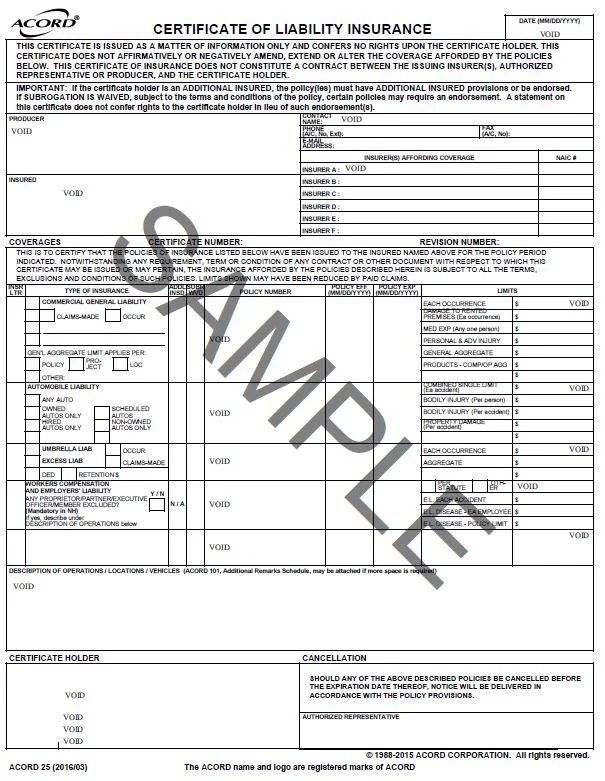Workplace accidents can happen anytime to any type of worker. You do can everything in your power to avoid them, but just like any life occurrence, anything can happen. Accidents happen every day, in fact, and in every industry. Find the 10 most common workers comp claims.
Read MoreSavvy business owners know to follow safety precautions and best practices for the workplace. But whenever you or an employee leave your premises to conduct business off-site, the liability risk doesn’t end there. Do you have the right off-site safety measures in place?
Read MoreEmployers continue to offer their employees hybrid work options. While there has been much progress in making remote work available and efficient, there are still some issues that lead to confusion. It can be very difficult to determine whether a company’s workers’ comp should cover an incident if an employee works away from the office with undefined hours.
Read MoreWorkers in your business are an important part of the overall operation. But employees are vulnerable to injuries and illness on the job even in the safest workplaces. Luckily, we can help you get set up with all the workers’ comp your workplace needs to stay safe and afloat for years to come.
Read MoreOne of the biggest components of workers’ compensation is an effective return-to-work program. Eliminating injuries and illnesses is paramount for reducing workers’ compensation costs, but after an incident, an program can significantly reduce workers’ compensation costs for employers and improve the lives of employees by getting them back to work when there is an injury or illness
Read MoreAn experience modification worksheet, often referred to as an experience rating worksheet or experience mod worksheet, is important in workers’ compensation insurance. Understanding the components on the experience modification worksheet is crucial for businesses to manage their workers’ compensation insurance costs effectively.
Read MoreEmployers are legally obligated to take reasonable care to assure that their workplaces are safe. Nevertheless, accidents happen. When they do, workers compensation insurance provides coverage. Workers compensation insurance serves two purposes: It assures that injured workers get medical care and compensation for a portion of the income they lose while they are unable to return to work and it usually protects employers from lawsuits by workers injured while working.
Read MoreIf you own a landscaping business, you know things happen! Some mistakes aren’t preventable, even when you take every precaution. What can be prevented is how much your business suffers financially when things go wrong. You might think the only mistakes you have to worry about are made in a regular day’s work. In reality, the biggest mistake you can make is not protecting yourself before the mistake ever happens.
Read MoreOn Oct. 11, 2022, the U.S. Department of Labor (DOL) announced a proposed rule to rescind and replace its 2021 independent contractor classification rule under the Fair Labor Standards Act (FLSA). If the rule is adopted, employers need to consider the “totality of the circumstances” in their worker classification efforts.
Read MoreIn the scope of workers’ compensation coverage, inflation issues have become increasingly evident through various sector trends—including labor shifts, rising wages, higher medical expenses and rate adequacy challenges. With this in mind, it’s important for businesses to better understand these trends and learn what they can do to mitigate inflation concerns within their workers’ compensation programs.
Read MoreThe workers’ compensation sector of the commercial insurance industry is generally a stable and profitable segment. However, the claims in this market have become costlier, with concerns over severity on the rise. While the frequency of claims has declined, several factors contribute to increasing claim expenses.
Read MoreOwning and operating a landscaping business has a list of responsibilities and its fair share of risks no matter if it’s a startup or large corporation. Team and customer safety should always be top-of-mind, which is why commercial landscaping insurance is essential to your business’s success.
Read MoreHiring seasonal workers is a necessity in some industries such as construction, manufacturing, agriculture, lawn care and retail. These workers can boost production during the summer, over the holiday season or when there’s a large contract to fulfill.
Read MoreCompanies across the country are experiencing labor shortages for a variety of reasons. Find out how these staffing shortages can impact workers’ compensation and what businesses can do to help deal with them.
Read MoreA certificate of insurance is a document from an insurer to show you have business insurance. This is also called a certificate of liability insurance or proof of insurance. With a COI, your clients can make sure you have the right insurance before they start working with you.
Read MoreFrom a deconditioned workforce and delayed claims reporting to COVID-19 long-haulers and overexertion injuries, here are key workers compensation risks to watch as businesses adapt in response to the pandemic.
Read MoreWorking in winter weather conditions can be risky for employees. Learn winter weather safety tips to implement at your small business that could lower the risk of injuries for your outdoor workers.
Read MoreThe Occupational Safety and Health Administration (OSHA) recently cited a company for exposing their workers to unsafe levels of airborne lead. They proposed a fine of over $319,000. This is just one example of citations and fines that OSHA can impose on a business for workplace safety violations. Do you know the other types of violations?
Read MoreAn employee turns off the power to a piece of equipment and sticks their arm into the machine to clear out a jam. A co-worker, unaware the power is off , turns on the equipment, injuring the employee. We've all heard horror stories like this, but with thorough lockout/tagout procedures in place, you can reduce the chance of accidents like this happening in your workplace.
Read MoreWorkplace injuries are not always simply the result of one-time accidents. Falling off a ladder, slipping on a wet floor, getting hit on the head by an object falling off a shelf, or slicing a hand on a sharp tool are common ways workers injure themselves while performing their daily job duties. However, long-term injuries that develop caused by repetitive, daily work activities are also common workers’ compensation claims.
Read More



















